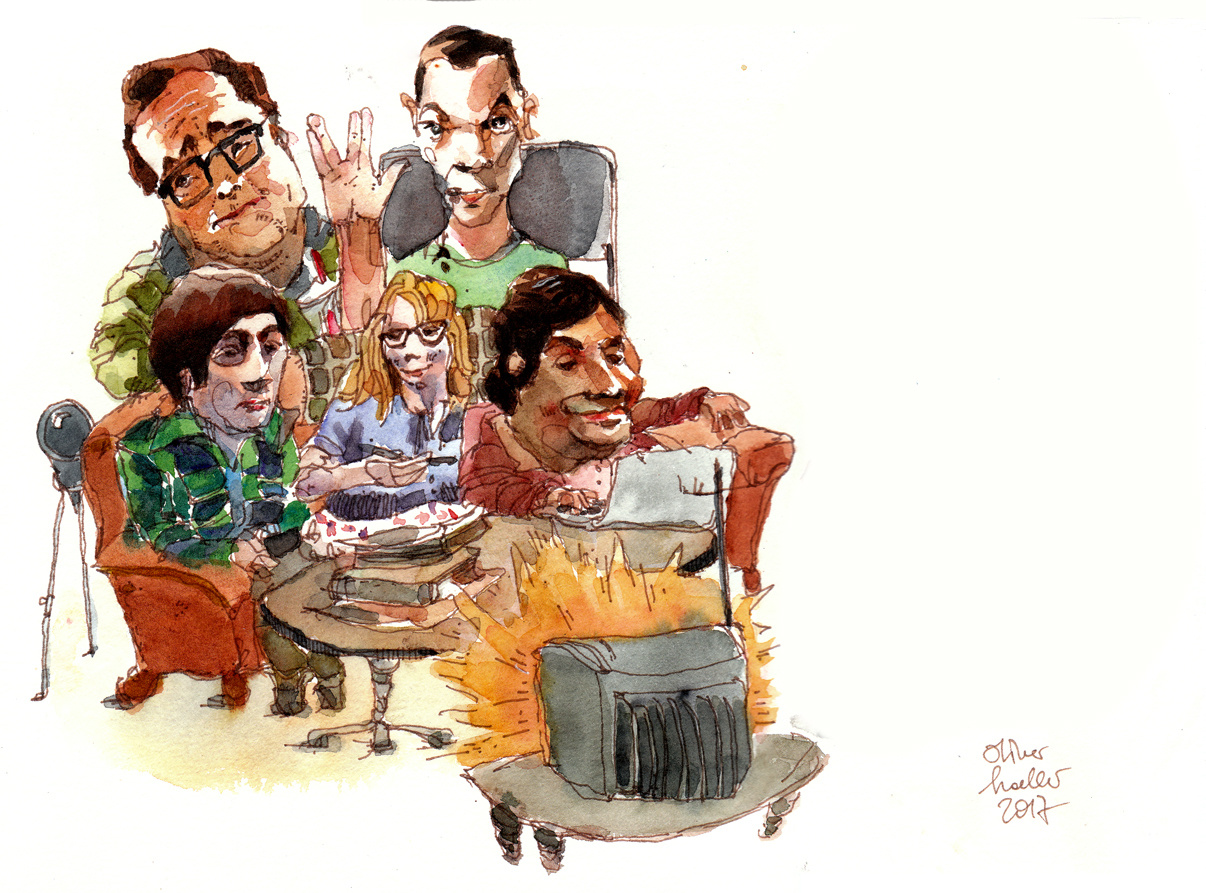
What’s the best portrayal of a scientist on TV? (Hint: it’s not who you think).
If you asked people to name a TV show character who’s a scientist, it’s pretty good odds they’d respond with one of the cast of “The Big Bang Theory“, CBS’ award-winning series about a group of physicists. The characters are almost uniformly socially awkward (if not handicapped), badly-dressed, hyper-intelligent yet lacking in common sense, and fetishise science fiction and fantasy franchises.
In short, they’re nerds. They fit a received preconception of what scientists are like, and much of the show’s humour is derived from laughing at them failing to negotiate everyday activities that the audience is encouraged to regard as normal and easy. That a substantial proportion of other contemporary sitcoms are based around regular people’s sexual or romantic inadequacies is an irony that’s not highlighted. Getting laid is not just a nerd’s problem.
In fact, whether or not you regard being a nerd as something to celebrate, there’s something ever-so-slightly distasteful about the way “The Big Bang Theory” encourages its viewers to scorn the antics of its characters. There are millions of science fiction fans the world over, so why does the show insist on depicting it as a slightly shabby and embarrassing enthusiasm?
To a degree, it’s reminiscent of bullying victims who end up agreeing with and playing up to the insults of their tormentors. And of course, it peddles the line that this is what all scientists are like. Scientists are nerds.
But they’re not. If people wonder why they’ve never seen some demented Doc Brown, hair astray and white coat flapping, it’s not because they’re squirrelled away and “working in the lab late one night” (as Boris Pickett would have it) – it’s because scientists look like everybody else. They’re normal. And it’s a fact that really only one TV show has recognised.
The best scientist on TV isn’t Professor Frink from “The Simpsons”, or Dr. Krieger from “Archer”. It’s not even Walter in “Breaking Bad”.
It’s Ross from “Friends”.

Yup. It’s so easy to forget that when he’s not hanging out or drinking interminable cups of coffee, Ross is a full-blown PhD-toting paleontologist. But why is it so hard to find similar portrayals of scientists on TV? Why has a stereotype that bears little resemblance to reality become so fixed in the popular imagination? And why are scientists invariably portrayed in such a negative way?
It’s not something that happens to medics. TV is replete with medical dramas that peddle an overwhelmingly positive view of doctors, even when certain characters (Dr. House) exhibit traits that are well outside the mainstream. Computer hackers too get the rockstar treatment. Yet these portrayals are as wide of the mark as The Big Bang Theory’s.
The writer and academic Ben Goldacre has observed that science coverage in the media generally falls into three categories: wacky stories (“watching TV makes you smarter!”), breakthrough stories (“the cure for cancer!”), or scare stories (“killer bug ate my face!”). His hypothesis is that this is because most science journalism is carried out by humanities graduates with a (possibly unconscious) agenda to parody science. It’s a short step from that kind of mainstream media coverage to fictional characters that match the parody, not the reality.
It’s tempting to think that it perhaps reflects an unspoken fear of change. The current political backlash against globalisation is being driven in large part by people who feel left behind by the pace at which the modern world is changing, and few demographics are as closely associated with that penetrance of technology and new knowledge into everyday life as scientists. It’s notable too that up until the 1960s, the portrayals of scientists in film and TV was similar to the veneration that medics still enjoy – and 1961 was the year when President Eisenhower warned against the military-industrial complex in his valedictory address. Does denigrating the demographic that’s most closely associated with technological change in fact betray our own discomfort?
Originally posted on TIR - here.







Join the FEBS Network today
Joining the FEBS Network’s molecular life sciences community enables you to access special content on the site, present your profile, 'follow' contributors, 'comment' on and 'like' content, post your own content, and set up a tailored email digest for updates.
Daniel Kehlmann's novel "measuring the world" is another example of scientists portrayed as being obsessive nerds living in their own world. Wherever you look there is hardly a normal human being deeply involved in science. If that is the case, it is much easier and more justified to ignore their conclusions.